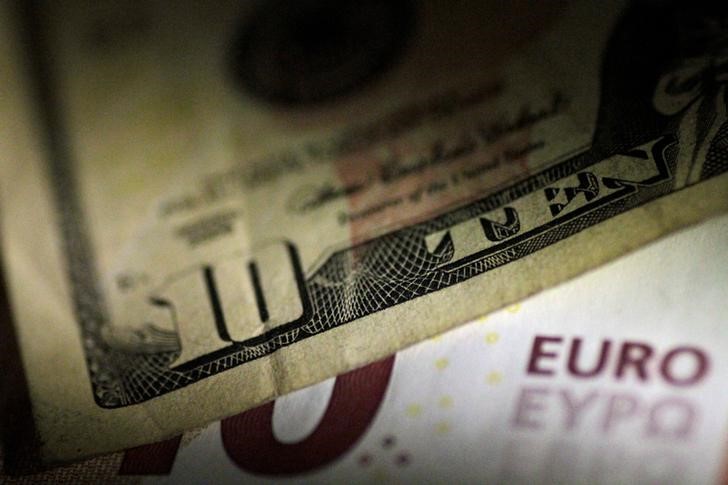
At 04:00 ET (08:00 GMT), the Dollar Index, which tracks the greenback against a basket of six other currencies, traded largely unchanged at 100.575, just above a 12-month low.
The US currency is stabilizing after last week’s selloff in the wake of the Federal Reserve rate cut.
The Fed started its rate-cutting cycle with a hefty 50 basis-point reduction, and now attention turns to the extent of the central bank’s further cuts this year.
Traders are now betting that there is a roughly 53% chance the Fed will bring rates down by a half-point again at its next meeting in November, according to the CME Group’s (NASDAQ:CME) closely-monitored FedWatch Tool.
Markets will likely be following comments on Tuesday from Fed Governor — and sole dissenter to the size of last week’s rate cut — Michelle Bowman.
This month’s Consumer Board consumer confidence release is due later in the session, but most eyes will be the release of the Fed’s preferred inflation gauge, core personal consumption expenditures, on Friday for more clues.
In Europe, EUR/USD traded 0.2% higher to 1.1135, attempting to rebound following a fall of around 0.5% overnight after data released on Monday showed that eurozone business activity contracted sharply this month.
The slump appeared broad-based with Germany, Europe’s largest economy, seeing its decline deepen while France – the second biggest – returning to contraction.
The European Central Bank cut rates for the second time this year earlier this month last week, and further signs of economic weakness could lift the chances of another rate cut in October.
GBP/USD traded largely unchanged at 1.3347, not far removed from last week’s 2-1/2-year high after the Bank of England kept rates unchanged.
“We do not see GBP/USD positioning as particularly stretched and given perhaps a softer dollar environment, the direction of travel continues to be towards 1.35,” said analysts at ING, in a note.
USD/CNY traded 0.2% lower to 7.0356, with the pair falling to its lowest level since May 2023 after the Chinese government announced a barrage of stimulus measures, raising hopes of a recovery in Asia’s biggest economy.
USD/JPY rose 0.6% to 144.51, after purchasing managers index data showed a sustained decline in Japanese manufacturing activity, while the services sector grew further.
The Bank of Japan held interest rates steady last week, and said it expected inflation and economic growth to steadily increase.
AUD/USD fell 0.2% to 0.6825 after the Reserve Bank of Australia kept interest rates steady as widely expected, while reiterating its determination to tame stubborn inflation.
To read the full article, Click Here
